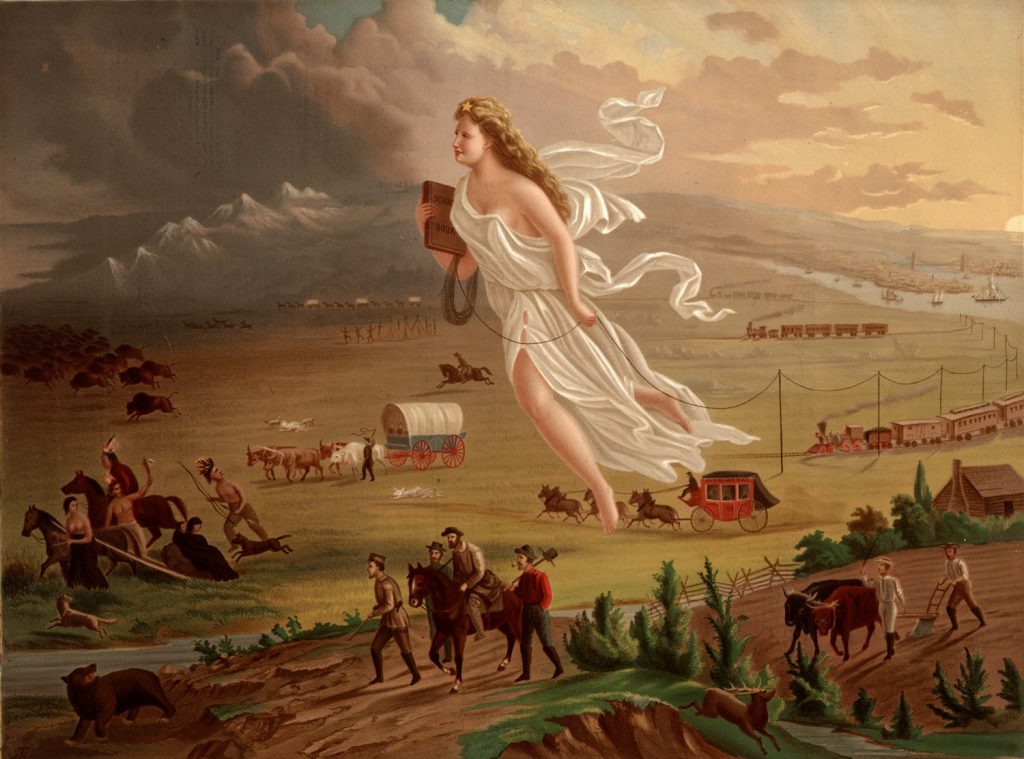The Frontier Myth is one of the most influential myths of American culture. The mythic frontier was established throughout the 17th century and into the 20th century. Frontier myth scholar Richard Slotkin defines the myth as “America as a wide-open land of unlimited opportunity for the strong, ambitious, self-reliant individual to thrust his way to the top.” These ideals were reflected across society via art, literature and music.


These ideals were reflected in James W. Casey’s song “My Golden West, I love You Best.” The cover art shows a cowboy and a cowgirl overlooking a cliff with a small settlement next to a river. While this music was published after the west was initially colonized the myth of the frontier is still being perpetuated in the cover art.

The lyrics to the song are focused on the natural beauty of the west and an angel who blesses the land. The beginning of the refrain starts with “out in the golden west… the mountains grew so high.. an angel then came down and made it her hometown…” The glorification of the natural environment of the west is a theme throughout the lyrics of the piece. Praising the beauty of the sunset and the beauty of the landscape. Casey is reinforcing the Romantic ideal of the west as having inherent natural beauty.
